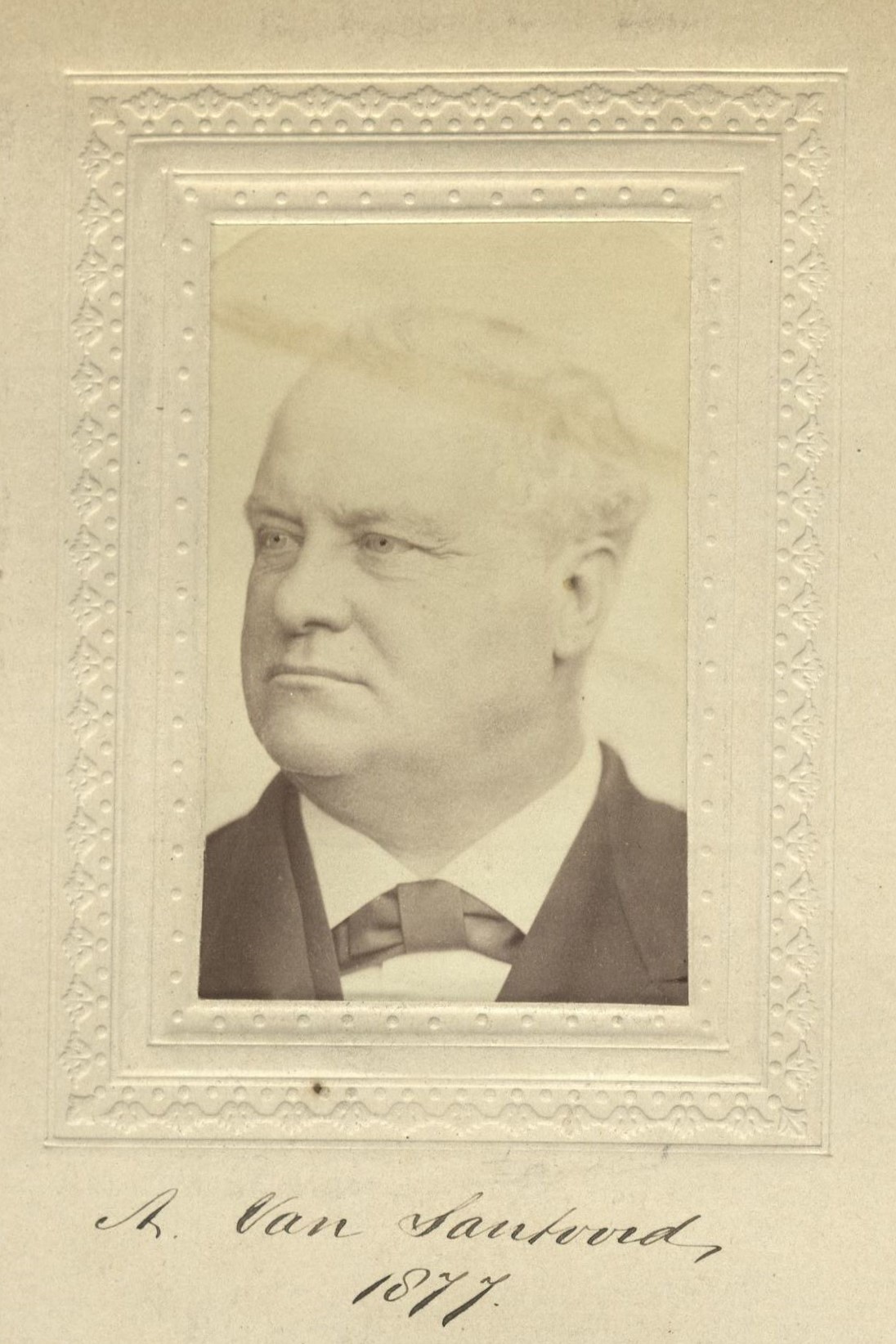Shipbuilder
Centurion, 1877–1901
Born 23 January 1819 in Utica, New York
Died 20 July 1901 in New York (Brooklyn), New York
Buried Albany Rural Cemetery , Menands, New York
, Menands, New York
Proposed by William Packer Prentice and S. Oakley Van der Poel
Elected 3 February 1877 at age fifty-eight
Seconder of:
Century Memorial
Alfred van Santvoord earned the title of “Commodore,” by which he was familiarly known; for during his long and active life he not only directed, but constructed fleets more numerous and swift than his Holland ancestors ever dreamed of. It was in his blood, as it was in that of his father, who built the ships with which MacDonough fought, and was among the first to grasp the opportunities opened up by the great water-way through the Erie Canal and the Hudson River from the lakes to the ocean. When Alfred van Santvoord assumed his father’s business, he devoted himself chiefly to the development of transportation of freight and passengers on the Hudson River by day and by night, and his day line was known to tourists throughout the world. Later in life, as his fortune grew with the fruitage of his energy, foresight, and staunch integrity, he became interested in many directions, in railways east and west, in banking and insurance corporations—he was one of the founders of the Lincoln Bank, a director in the Equitable Life Assurance Society and in a number of railways; but his interest in the noble river and its valley was absorbing and had in it a touch of manly affection. The dykes by which the channel of the river was deepened were of his suggestion and, in a way, of his invention; and he regarded the system as one of the most important works of his life. His love of the water was a mild passion with him, and he was accustomed to take up his residence in summer on his side-wheel yacht, the Clermont, as other men visit the seaside or the mountains. He was most affectionate and happy in his home life, of which he was very fond. To The Century he was a frequent and most welcome visitor. He died at eighty-two, after a brief illness, amid all
“that which should accompany old age,
As honor, love, obedience, troops of friends.”
Edward Cary
1902 Century Association Yearbook

